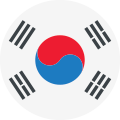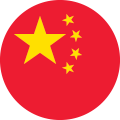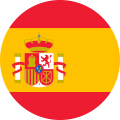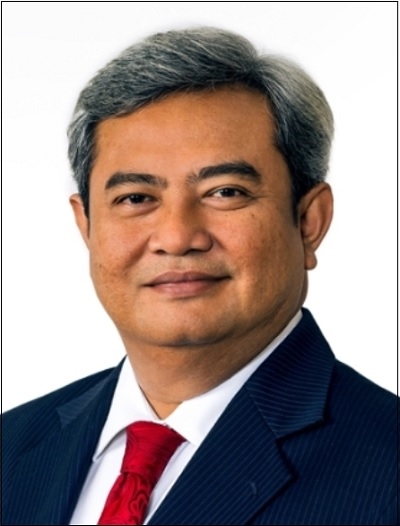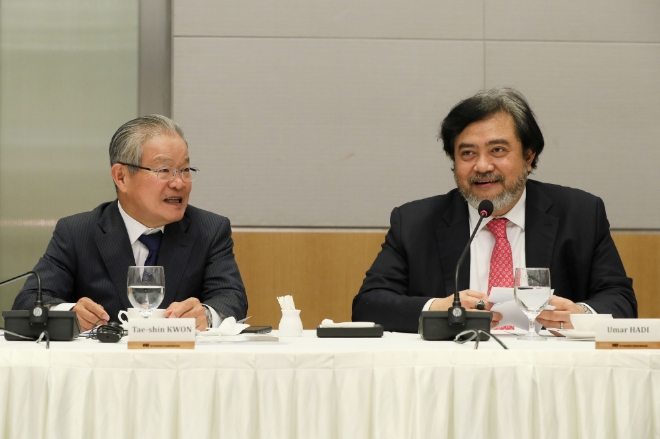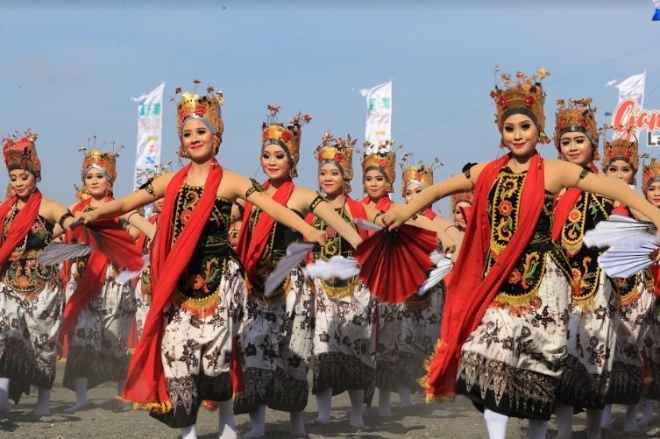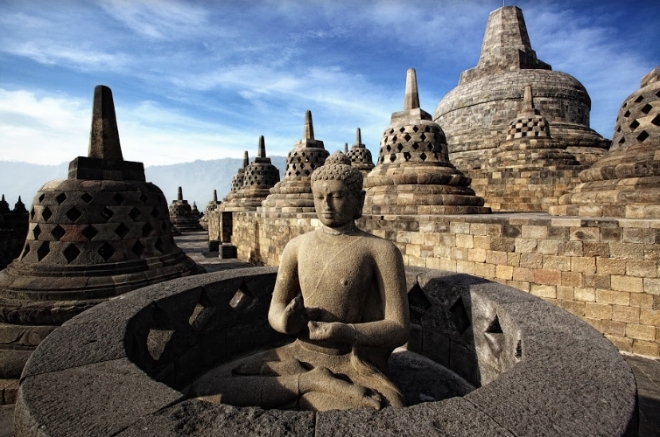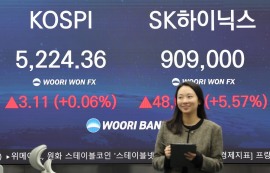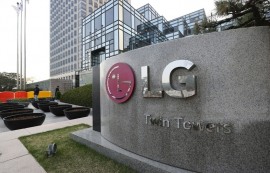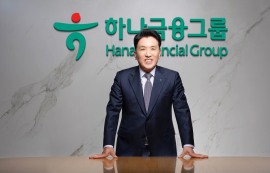[新남방로드 릴레이 인터뷰③] 우마르 하디 주한 인도네시아 대사
한국 투자액 7번째로 많아...올해 1분기만 1050개 프로젝트에 1600억 성사
"아세안 회원국 중 유일하게 '특별 전략적동반자관계' 교류협력 확대될 것"
문재인 대통령은 지난 2017년 11월 인도네시아 자카르타에서 '신남방 정책'을 처음으로 국내외에 천명했다. 한국 투자액 7번째로 많아...올해 1분기만 1050개 프로젝트에 1600억 성사
"아세안 회원국 중 유일하게 '특별 전략적동반자관계' 교류협력 확대될 것"
미국·중국·일본·러시아 등 한반도 주변 4대 강국 중심에서 탈피해 동남아시아국가연합(ASEAN·아세안)과 인도 등 신흥국들과 정치·경제·문화 전면 교류와 우호적 외교채널 구축을 표방하는 다자외교 패러다임을 처음 공개하는 장소로 자카르타를 선택한 것은 '신남방 정책'에서 인도네시아가 차지하는 중요성과 비중을 잘 보여준다.
실제로 인도네시아는 10개 회원국을 둔 아세안의 사무국 소재국인 동시에 아세안 회원국 중 유일하게 우리나라와 '특별 전략적 동반자관계'를 맺고 있다.
글로벌이코노믹은 아세안 회원국의 한국주재 대사들과 릴레이 인터뷰(서면)를 갖고 아세안이 바라보는 '신남방 정책'을 조명해 본다. 첫 순서로 우마르 하디(H.E. Umar Hadi) 주한 인도네시아 대사와 비대면 인터뷰를 갖고 '신남방 정책'에 인도네시아의 평가, 한-인도네시아 협력관계의 전망 등을 국문(번역문)과 영문(원문)으로 소개한다. <편집자 주>
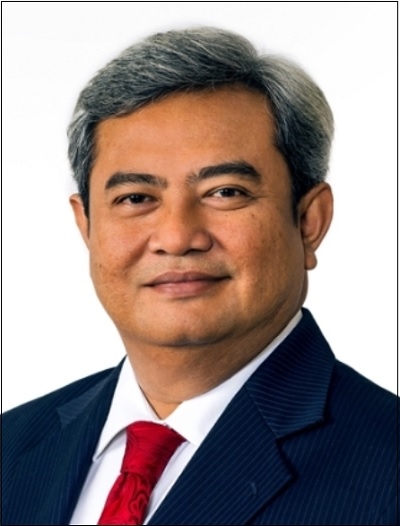 이미지 확대보기
이미지 확대보기한국의 '신남방 정책'에 인도네시아 정부(주한대사관)와 국민들이 어떻게 평가하는지 궁금하다.
"인도네시아는 2017년 11월 문재인 대통령이 신남방 정책을 천명한 이래 줄곧 적극적인 환영 의사를 밝혀 왔다. 문 대통령은 2017년 11월 8~10일 인도네시아에 국빈 방문해 신남방 정책을 처음 발표했다. 인도네시아는 문 대통령이 한국의 중요한 외교정책을 처음 발표하는 장소로 인도네시아를 선택했다는 것에 영광으로 생각한다.
동시에 양국관계를 ‘특별 전략적 동반자관계(Special Strategic Partnership)’로 격상시키기로 합의했다는 점에서 문 대통령의 인도네시아 국빈 방문은 역사적으로 중요한 모멘텀을 제공했다.
인도네시아는 한국이 특별 전략적 동반자관계를 맺고 있는 유일한 아세안 회원국이다. 이는 한국의 신남방 정책에서 인도네시아의 중요성을 잘 보여주는 증거라고도 할 수 있다.
나는 양국 협력관계가 다양한 분야에서, 다양한 수준으로 발전해 온 것을 지켜봐 왔다. 앞으로도 양국 협력관계가 더 빠르게 발전할 것으로 믿는다.
실제로 인도네시아가 아세안 국가 중 경제 규모가 가장 큰 국가라는 점에서, 신남방 정책은 양국의 지속가능한 협력관계를 한층 강화시킬 기회라고 생각한다. 신남방 정책은 세 기둥인 3P-People(사람), Peace(평화), Prosperity(번영)-를 통해 양국의 사람과 사람간 교류를 더 확대시킬 프레임워크를 제공할 것이고, 이는 평화 정착과 상생 번영에 기여할 것이다."
인도네시아와 한국 간 교역과 인적교류는 어떤 수준으로 발전하고 있나요.
"양국 교역은 비교적 안정적이고 균형있게 성장해 왔지만 앞으로 더 성장할 여지가 많다고 본다. 지난해 양국간 교역량은 총 164억 6000만 달러(약 20조 원)였다. 아세안 회원국 중 인도네시아는 베트남에 이어 한국의 두 번째로 큰 교역 상대국이다.
올해 1분기에 양국의 총 교역량도 39억 7000만 달러(약 4조 8000억 원)으로, 인도네시아가 한국에 수출한 금액이 약 21억 달러, 한국이 인도네시아에 수출한 금액이 약 18억 달러를 각각 기록하고 있다.
양국 교역에서 최대 핵심 이슈는 인도네시아의 대(對)한국 수출의 30% 이상을 석탄 등 광물자원이 차지하고 있다는 것이다. 인도네시아는 호주에 이어 한국에게 두번째 로 큰 석탄 공급국이다.
따라서 인도네시아 입장에서 석탄 외의 다른 제품의 수출을 늘리는 것이 가장 중요한 과제이다. 유망 수출품목으로는 목재 제품, 가공 식음료 제품, 전자부품, 자동차부품 등을 들 수 있다. 이런 제품들을 생산하려면 인도네시아는 한국의 투자 확대와 한국기업과 합작회사 설립이 필요하다.
지난해 10월 ‘한-인도네시아 포괄적 경제동반자협정(IK-CEPA)’ 협상이 타결됐다. 이 협정은 조만간 서명을 거쳐 내년 초에 발효될 예정이다. 협정이 시행되면 인도네시아 시장의 93%가 한국에 개방된다.
특히, 협정으로 자동차, 자동차부품, 철강, 섬유 등 품목의 관세가 면제되거나 인하될 것이다. 양국은 서로 넓은 시장접근성을 향유하게 될 것이며, 오는 2022년 양국 교역량 300억 달러 달성 목표에도 기여할 것으로 본다.
관광산업 분야를 얘기할 것 같으면, 올해 1~3월 인도네시아를 방문한 한국인 관광객 수는 지난해 같은 기간과 비교해 약 25.11% 감소했다. 한국을 방문한 인도네시아인 관광객 수 역시 같은 기간에 전년동기 대비 37.7%나 줄었다. 물론 감소 원인은 코로나19 팬데믹(대유행)에 따른 결과이다.
그러나, 코로나19 이후 ‘뉴 노멀 시대’에는 양국 간 관광교류 전망을 밝게 보고 있다.
인도네시아 발리 섬은 한국인 관광객에게 여전히 가장 인기 있는 관광지다. 주한인도네시아대사관의 조사에 따르면, 많은 한국인들이 다가오는 겨울 휴가철에 발리 섬으로 여행가기를 희망하고 있었다.
현재 인도네시아 관광창조경제부와 발리 주정부는 발리 섬에 적용할 새로운 보건 기준인 ‘위생보건안전기준(Cleanliness, Health, Safety Standards:CHS)’을 마련 중이다. 이 기준이 시행되면 외국인 관광객들이 보건이나 안전에 걱정 없이 휴양을 즐길 수 있을 것으로 기대한다.
한국에 거주하는 인도네시아 국민의 수가 많다는 점도 간과할 수 없다. 현재 한국에는 약 4만 명의 인도네시아 국민이 체류하고 있다. 이들 대부분은 외국인고용관리시스템(EPS)으로 취업체류 중인 이주근로자이다.
한국 국민 역시 인도네시아에 약 6만 명이 살고 있으며, 인도네시아 내에서 가장 큰 외국인 교민 커뮤니티를 형성하고 있다. 이는 양국 간 문화교류에도 크게 도움을 주고 있다. "
한국 기업들이 인도네시아 신수도 사업 등 현지 인프라 사업 참여에 관심이 높은데, 인도네시아 측이 기대하는 한국측 참여 수준은 무엇인지.
"인도네시아의 중요한 전락적 프로젝트들에 한국 기업들이 적극 투자하고 있어 고무적으로 생각한다. 한국은 인도네시아에 7번째로 큰 투자국으로, 3만 개 이상의 일자리를 창출하는데 기여했다.
올해 1분기 한국은 인도네시아에서 총 1050개 프로젝트에 약 1억 3040만 달러(약 1586억 원) 규모로 투자했고, 이 프로젝트들은 지금도 현재진행형이다.
우리는 한국 기업들과 계속 긴밀한 접촉을 유지하고 있으며, 인도네시아의 코로나19 확산 속에서도 기존 프로젝트들을 계속 진행하기 위해 분투하고 있는 한국 기업들의 노고에 감사한다.
지난 5월 27일 주한 인도네시아대사관은 전국경제인연합회(전경련)가 주최한 간담회에서 25명의 주요 한국 기업인들과 미팅을 가졌다. 당시 한국 기업인들은 지금은 물론 포스트 코로나 시대에도 인도네시아 경제가 건실하게 성장할 것이라고 확신하고 있었다.
(이날 간담회에는 권태신 전경련 부회장, 황수 일진전기 사장, 허경구 한국해외인프라도시개발지원공사(KIND) 사장을 비롯해 롯데케미칼, 대우조선해양, 한화, 두산중공업, 현대자동차, 포스코, KB국민은행, 우리은행, 종근당, 대상, GS건설, 쌍용건설, 해외건설협회, 법무법인 율촌, 삼정회계법인 등의 관계자 약 25명이 참석했다 - 편집자 주)
인도네시아 신수도 사업도 다양한 분야에서 많은 한국 기업들이 큰 관심을 표명해 왔다. 지난해 11월 부산에서 열린 한-아세안 특별정상회의에서 인도네시아 공공사업주택부 장관과 한국 국토교통부 장관은 인도네시아 수도이전사업의 기술협력을 위한 양해각서(MOU)를 체결했다.
현재 인도네시아에 기술 자문을 제공하기 위해 3명의 한국 기술자문관이 현지에 파견돼 있다. 주한 인도네시아대사관은 양국 간에 현재 진행 중인 투자사업은 물론 앞으로 유망사업에도 투자를 촉진시키기 위한 노력들을 지속해 기울여 나갈 계획이다."
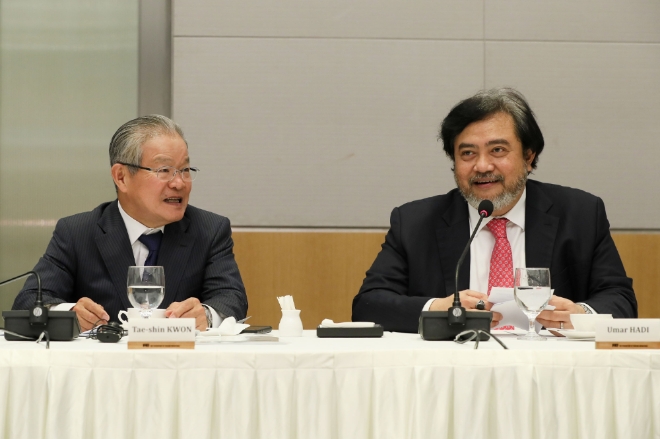 이미지 확대보기
이미지 확대보기주한 인도네시아대사관을 간단하게 소개해 달라.
"인도네시아 정부와 국민을 대표해 양국 정부와 국민 간 교류와 우호관계를 더욱 공고히 하 기 위해 노력하고 있다.
아울러 한국에 있는 인도네시아 국민의 보호와 영사업무는 물론, 양국간 정치, 경제, 사회, 문화 교류를 위해 힘쓰면서 양국 간 가교 역할을 하고 있다.
대사관 외에 서울에 인도네시아투자진흥센터(IIPC), 부산에 인도네시아무역진흥센터(ITCP)가 양국 교역과 투자협력에 힘쏟고 있다.
주한 인도네시아대사관은 한국의 월스트리트인 서울 여의도에 있으며, 1973년 양국 외교수립 이후 1977년 설치됐다.
개인 소개를 한다면, 2017년 6월 주한 인도네시아대사로 부임해 왔다. 부임 전에는 미국 로스앤젤레스(LA) 주재 인도네시아총영사, 네덜란드 주재 전권공사 등을 지냈다.
논픽션 저서 몇 권을 저술했고, 다큐멘터리 영화 몇 편을 제작하기도 했다. 또한, 서로 다른 종파와 문화 간 화해를 도모하기 위한 다수의 시민사회활동을 조직한 경력이 있다."
한국 정부와 기업, 국민에게 하고 싶은 말씀이 있다면.
"인도네시아는 기업에 개방적인 나라이다. 인도네시아와 한국은 민주주의, 인권, 시장경제 등 보편적 가치와 원칙을 공유하고 있다. 양국은 민주국가로서 아시아와 세계의 평화와 번영, 사회 정의를 증진시키는데 헌신해 왔다.
단순한 경제적 이익이나 무역수지 흑자를 위해서가 아니라 상호신뢰, 상호존중, 그리고 연대의식에 기반하기 때문에 양국의 특별 전략적 동반자관계는 더욱 공고해질 것으로 생각한다. 한국은 인도네시아가 신뢰하는 파트너국이다.
특히, 코로나19 사태 기간 동안 보여준 양국의 협력 모습은 앞으로 양국 관계가 더 굳건해질 것임을 입증해 줬다.
나는 코로나19 극복을 위해 한국 정부와 한국 국민들이 보내준 지원에 깊은 감사를 전하고 싶다. 인도네시아는 코로나19를 극복하기 위한 국제적 결속과 협력을 위해 언제나 한국과 함께 할 것이다.
코로나19 사태는 한국 기업들이 인도네시아에 진출할 수 있는 많은 사업 기회를 만들어 주기도 했다. 진출 분야는 의료, 바이오제약, 자동차, 관광, 농기계, 가공식품, 목재산업, 의료진을 위한 시설 건설부터 석유화학 프로젝트까지 다양하다.
인도네시아 국민은 국가 미래에 가장 낙관적으로 생각하는 국민 중 하나이다. 현재 인도네시아는 동남아 국가 중 가장 경제 규모가 크고, G20 회원국이다. 오는 2045년 세계 5대 경제대국으로 도약할 것이라는 가능성이 큰 나라이기도 하다. 양국이 서로 협력해 함께 발전하기를 바란다."
[우마르 하디 주한 인도네시아대사 Who's Who] 2005~2009년 인도네시아 외교부 공공외교국장, 2009~2012년 주네덜란드 인도네시아대사관 전권공사(Deputy Chief of Mission), 2012~2014년 인도네시아 외교부 서유럽국장을 역임한 뒤 2014~2017년 주 로스앤젤레스(LA) 인도네시아 총영사를 거쳐 2017년 6월부터 주한 인도네시아대사로 재임 중이다.
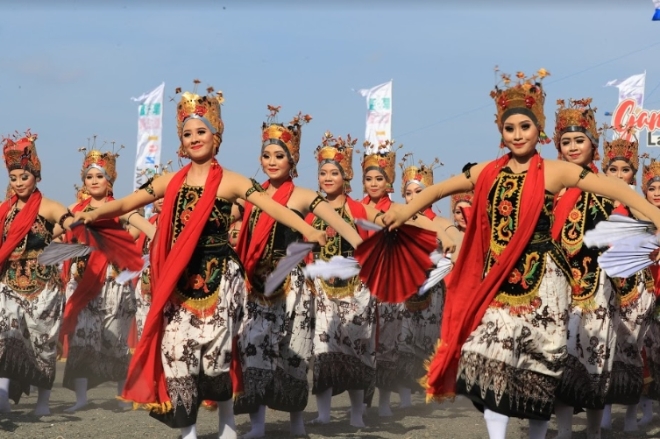 이미지 확대보기
이미지 확대보기[박스] 인도네시아 조코위 정부, 약 500조 투입 '국가인프라 개조' 작업중
인도네시아는 인구 2억 7400만 명의 세계 4위 인구대국이자 아세안(ASEAN·동남아시아국가연합) 10개 회원국 전체 인구의 40%, 아세안 GDP(역내총생산)의 35%를 차지하는 아세안 중심국이다.
세계경제포럼(WEF) 2019년 국제경쟁력보고서에 따르면, 인도네시아의 인프라 부문 글로벌 경쟁력은 조사대상 141개 나라 중 72위의 중간 수준이지만, 지난 2014년 출범한 조코 위도도 정부는 집권 초반부터 인프라 확충에 적극 나서고 있다.
지난해 10월 집권 연장에 성공한 조코위 2기 정부는 '2020~2024년 국가전략 프로젝트 5개년 계획'을 발표하고 신수도 건설을 비롯해 철도, 항만, 산업단지, 상수도 등 총 4200조 루피아(약 367조 원) 규모의 총 223개 인프라 프로젝트를 설정한데 이어 지난달 하순 1420조 루피아(약 124조 원) 규모의 89개 신규 프로젝트를 추가하며 국가개발에 강한 의지를 드러냈다.
인도네시아 국가전략 프로젝트 중 대표사업으로 '신수도 건설사업'이 꼽힌다. 수도를 현재의 자카르타에서 보르네오섬 동(東)칼리만탄 지역으로 옮기는 초대형 프로젝트로 오는 7월 착공해 오는 2024년 1단계 완공을 목표로 하고 있다.
현재 코로나19 사태로 일정이 다소 지연되고 있지만, 조코위 정부는 신수도 건설과 함께 인도네시아 전국에 최소 10개 이상의 광역도시를 건설하는 작업도 병행해 자카르타가 위치한 자바섬의 경제집중과 인구밀집, 지역 불균형 문제를 해결한다는 포부이다.
이밖에 인프라 사업의 전제가 되는 토지개간사업의 행정절차 개선에 힘쓰는 한편, 코모도 섬 등 5개 관광지에 총 4조 루피아(약 3440억 원)를 투자해 관광산업을 활성화하는 계획도 국가전략 프로젝트에 포함돼 있다.
[첨부] 우마르 하디 주한 인도네시아대사 비대면(서면) 인터뷰 영어 원문 내용. (WRITTEN INTERVIEW H.E. UMAR HADI, AMBASSADOR OF INDONESIA WITH GLOBAL ECONOMIC)
Q: Please can you kindly introduce you and your people's opinion about the 'New Southern Policy (NSP)' of the president Moon Jae-in and Korean government.
A: Indonesia certainly has welcomed the New Southern Policy (NSP) with open arms ever since it was announced by President Moon Jae-in in November 2017. In fact, the NSP was first launched by President Moon during his state visit to Indonesia on 8-10 November 2017. Indonesia was honored to be chosen by President Moon Jae-in as the country where he announced this important foreign policy initiative.
The state visit of President Moon Jae-in to Indonesia in November 2017 was also a historical momentum during which both countries agreed to elevate the relationship to Special Strategic Partnership. Indonesia is the only ASEAN country that Korea has a special strategic partnership with. It is a valid evidence of the high importance of Indonesia in Korea's NSP.
The NSP and Special Strategic Partnership serve as both the foundation and future direction for Indonesia-Korea relationship. We have seen that cooperation between the two countries has developed robustly in various fields and levels; and it will grow even faster in the coming years.
Indeed, the NSP presents an opportunity for a more sustainable relationship between Korea and, naturally, Indonesia as the biggest economy in ASEAN. With its three pillars namely People, Peace, and Prosperity, the NSP provides the framework for Korea and Indonesia to enhance relationship with strong people-to-people contact which contributes to shared prosperity of the people in a peaceful region.
Q: Please can you give us a summary of the current situation on trade volume and human interchange between Indonesia and Korea.
A: Bilateral trade between the two countries has been good, stable and relatively balanced; but we can do much better. In 2019, total bilateral trade between Indonesia and Korea was worth USD 16.46 billion. Indonesia is Korea’s second largest trading partner in ASEAN after Vietnam.
In Q1 this year, total bilateral trade has reached USD 3.97 billion. Exports from Indonesia to Korea was valued at around USD 2.1 billion, whereas imports from Korea to Indonesia was worth 1.8 billion US dollars.
The most crucial issue in our bilateral trade is the fact that more than 30% of Indonesia’s export to Korea is coal and other minerals. Indonesia is the second largest coal supplier to Korea, after Australia. It is therefore crucial to boost export of Indonesian products other than coal. Among the most potential products are wood products, processed food and beverages, electrical components, and auto parts. To produce those products, we need more investments from and more joint ventures with Korea.
Indonesia and Korea concluded the negotiations on the Indonesia-Korea Comprehensive Partnership Agreement (IK-CEPA) in October last year. Soon, the Indonesia-Korea Comprehensive Economic Partnership Agreement (IK-CEPA) will be signed. We expect the Agreement to be implemented in the early 2021. With the IK-CEPA, 93% of Indonesian market will be open to Korea. IK-CEPA will also eliminate and reduce tariffs on certain items such as automotive, auto parts, steel, and textile. Indonesia and Korea will enjoy wider market access. The IK-CEPA will support both countries' efforts to reach the target of USD 30 billion by 2022 in bilateral trade.
In terms of tourism, there has been a decline in the number of Korean tourists to Indonesia in January-March 2020 of about 25.11% compared to the same period last year. We also observed a decrease in the number of Indonesian tourists to Korea in January-March 2020 of about 37.7% compared to the same period last year. These are certainly challenging times due to the COVID-19 pandemic.
However, we still forecast a bright outlook on bilateral tourism in this New Normal era. Bali Island remains the most favorite tourist destination for Koreans. The Embassy has gathered information that many Korean tourists wish to travel again to Bali Island in the coming winter break. The Indonesian Ministry of Tourism and Creative Economy and the Provincial Government of Bali are currently preparing Cleanliness, Health, and Safety (CHS) health standards/protocols in Bali. Through the implementation of these standards, we want foreign tourists to enjoy their holiday without worrying about their health and safety.
It is important to note that the number of Indonesian nationals living in Korea is quite significant, about 40 thousand people, most of them are migrant workers in the EPS system. On the other hand, the number of Korean nationals living in Indonesia is about 60 thousand people; making Koreans the largest expat community in Indonesia. This has intensified cultural exchanges between Indonesia and Korea.
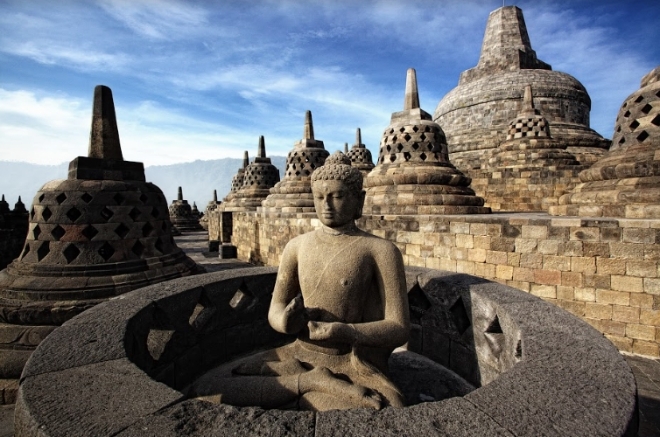 이미지 확대보기
이미지 확대보기Q: What do you think about Korean companies' participation in the Indonesia's infrastructure construction projects (ex: 'New Capital Project' and so on)?
A: It's reassuring to see that Korean enterprises are actively investing in Indonesia's strategic projects. In 2019, Korea was the 7th largest investor in Indonesia, contributing to the creation of more than 300,000 new jobs in Indonesia. In Q1 2020, Korea's investments in Indonesia amounts to USD 130.4 million with 1,050 projects currently ongoing.
We continue to maintain close contact with Korean companies in Indonesia and appreciate the hard work that they have exerted to continue their projects despite the COVID-19 situation in Indonesia. Last week I met with 25 eminent Korean business leaders at a forum held by the Federation of Korean Industries. They have strong confidence that Indonesia’s economy will stay resilient during and post the pandemic.
Also, we have received strong interest from various Korean companies to participate in the development of Indonesia's new capital project in East Kalimantan. Last year, in the margin of the ASEAN-ROK Commemorative Summit in Busan, the Indonesian Ministry of Public Work and Housing (MPWH) and the Korean Ministry of Land, Infrastructure and Transport (MOLIT) signed a Memorandum of Understanding Concerning the Technical Cooperation on Capital City Relocation and Development. Currently there are three technical experts sent by MOLIT to provide technical assistance to MPWH on the capital city relocation and development.
The Embassy will remain active in facilitating the ongoing and prospective investments between Indonesia and Korea.
Q: Please can you introduce the role of the Embassy of Indonesia in Korea. And please introduce yourself to us as well.
A: The principal role of the Embassy of Indonesia in Seoul is to bridge and connect Indonesia and Korea. We are the representative of Indonesia in Korea. We are here to promote better, deeper, and stronger relationship and friendship between the government and people of Indonesia and Korea. Our daily business mainly deals with political, economic, socio-cultural, public diplomacy, protocol and consular affairs, as well as protection of Indonesian citizens in Korea.
The Embassy is also supported by the Indonesian Trade Promotion Center (ITPC) in Busan and the Indonesia Investment Promotion Center (IIPC) in Seoul to help boost trade and investment cooperation between Indonesia and Korea.
The premises of the Embassy are located in Yeoui-do, the Wall Street of Korea, with its busy and bustling vibe just beside the iconic Han River. The Embassy compound was built in 1977 shortly after the establishment of diplomatic relations between Indonesia and Korea in 1973.
I have been serving as the Ambassador to Korea since June 2017. As a professional diplomat, my previous tours of duty include among others Consul General in Los Angeles and Deputy Chief of Mission in the Netherlands. As a personal passion, I have also written few non-fiction books, produced few feature and documentary films, and organized a number of civil society movements related to inter-faith and inter-cultural dialogues.
Q: Finally, is there anything you would like to share or say to Korean government, Korean business companies and Korean people.
A: Indonesia is open for business. Indonesia and Korea share common values and principles of democracy, human rights, and market economy. As fellow democracies, Indonesia and Korea are committed to work together to promote peace, prosperity and social justice in Asia and in the world.
Our special strategic partnership thrives because of mutual trust, mutual respect, and solidarity; and not merely because of profits, balance sheet and bottom-line. Korea is Indonesia's trusted partner.
During these difficult times of the COVID-19 pandemic, our two countries' relationship have been proven to be stronger than ever. I would like to express my sincere gratitude to the generous contribution rendered by the Government and people of Korea to support Indonesia in coping with COVID-19. Indonesia will always work together with Korea, to promote international solidarity and cooperation in the fight against COVID-19 pandemic.
The COVID-19 crisis itself offers plenty business opportunities in Indonesia that Korea should benefit from, ranging from medical and bio-pharmaceutical; automotive and auto parts; tourism; agriculture machineries and technology; processed food and beverages; wood products; capacity building for nurses and caregivers; to downstream petrochemical projects. Let us work together.
Indonesians are among the most optimistic people about the future of their country. Today, Indonesia is the largest economy in Southeast Asia and a respected member of the G20. It is expected that by 2045 Indonesia will be among the five largest economies in the world.
김철훈 글로벌이코노믹 기자 kch0054@g-enews.com


